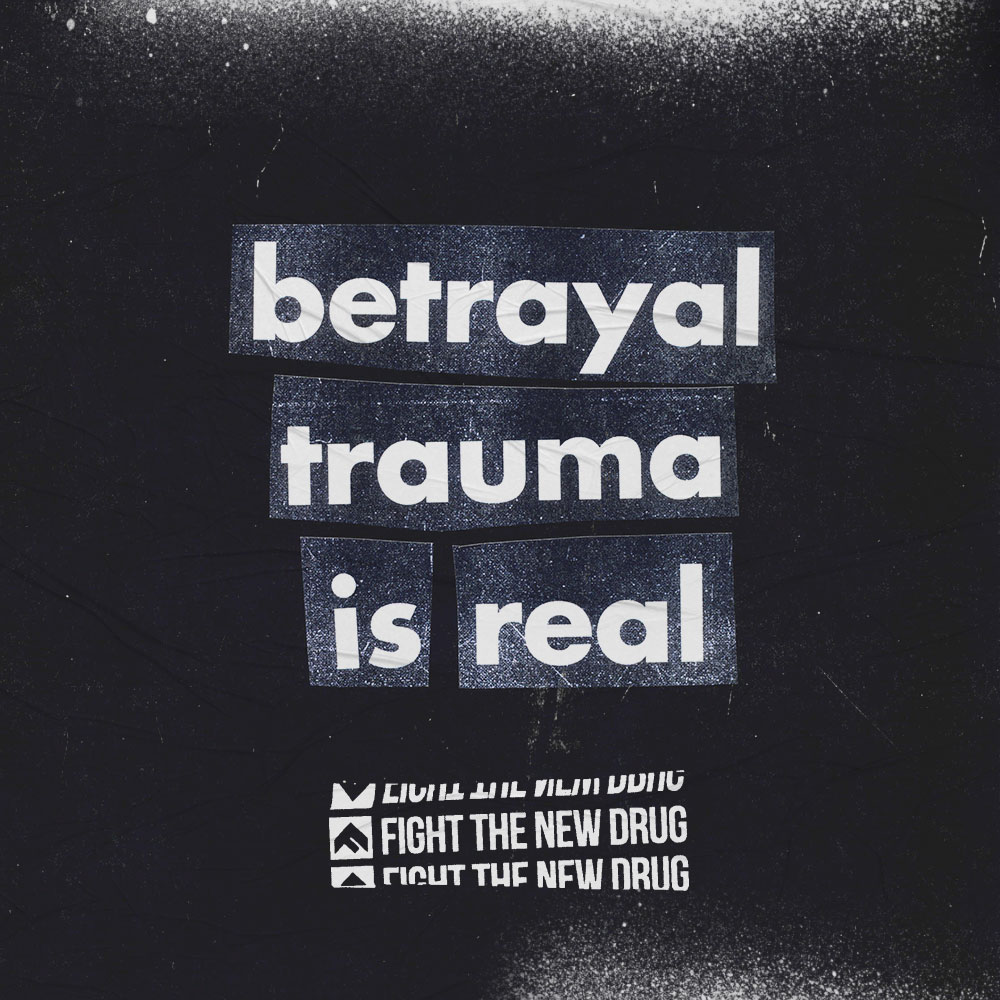This article contains affiliate links. Fight the New Drug may receive financial support from purchases made using affiliate links.
NOTE: If, at any point in the relationship, there is domestic abuse and mistreatment involved, simply waiting it out is not the best idea. Get help immediately.
Porn kills love. It’s a concise statement we crafted to encompass various adverse impacts of pornography on relationships.
Porn kills love because of the impact it has on the consumer, making it difficult for people to find satisfaction and deep connection with the people around them. But the other side of it is that porn kills love because of the impact it has on the partner of a porn consumer.
It’s okay to not be okay with your partner’s porn habit. You are not alone.
Knowing that your partner is consuming porn is difficult—there’s no getting around it. Even if you understand the addictive nature of porn and that, a lot of the time, the compulsion is not about you and your attractiveness, it’s easy to feel like you’re not enough when your partner keeps turning elsewhere.
Because porn can be so addictive and is a pretty taboo subject, consumers will frequently lie or deny the problem rather than deal with it and the negative feelings that come with it. Sometimes, it can even be years before a person discovers that their partner has a porn problem. The lies and repeated lapses can devastate a partner and lead them to feel like their world is turned upside down and they can’t trust anyone.
This can lead to what’s called “betrayal trauma.” There is a lot of science that shows that this kind of trauma is real. It can lead to physical symptoms like headaches and nausea, as well as mental health symptoms like anxiety, depression, obsessive thoughts, and, many times, post-traumatic stress disorder.
With all of these things hitting you, it can be incredibly difficult to be a supportive, loving partner for someone who struggles with porn, even if they are trying their best to fight it. So, how can you healthily fight it together if you decide not to go your separate ways? How can you support them as they choose to fight for themself if you decide to stay in the relationship?
We don’t pretend to have all the answers, and the solutions will vary depending on your situation, but here are some things we suggest for the time being as this healing process starts to take place. These tips could also be relevant to a partner that chooses not to stay with someone while they battle a porn struggle for themself.
Acknowledge how you feel.
It can be a whirlwind to find out your partner struggles with porn, so make sure to give yourself a moment. In order to really be able to help your partner, figure out exactly how you feel about everything. Go for a walk or sit down without distractions and try to figure out exactly what’s happening in your heart. If it helps, write down what you’re feeling to try to work through your thoughts because they probably are pretty messy and tangled. And that’s okay.
Take care of yourself.
It can seem selfish to take some time to make sure you are doing well physically and mentally while your partner is struggling, but if you’re not doing well, you’re not going to be able to help them do well and encourage them from the sidelines.
Find someone to talk to, whether that’s a trusted friend, a therapist, or both. Get on anti-anxiety medication if you need to. Find hobbies that help you relieve stress, like meditation, yoga, or ultra-extreme kickboxing—whatever works for you.
Try to stick to a proper, healthy eating and sleeping schedule so you can be the healthiest mentally and physically as possible, and encourage your partner to do the same.
Talk it out.
It can be painful and uncomfortable at first, but it’s important to have an open, honest conversation with your partner about the reality of what’s going on. That doesn’t mean trying to guilt trip them, shame them, or play down your feelings of hurt so as not to hurt their feelings. Find a middle ground where you can let them know how the situation impacts you, and listen and be kind when they open up about their struggles. As you listen, see if there are moments where you can tell them that you care about them and make them feel validated when it’s appropriate.
Try to schedule a time for both of you when you check in and see how it’s going. If you need to, try relationship counseling so you can have a trained third-party professional to give you good advice. Create an accountability system that suits both of you, whether it’s being their partner in accountability or involving a trusted friend or mentor.
Be patient.
Change is difficult, and it can take time. Relapses happen, and they don’t mean that your partner isn’t doing their best to give up porn. At the same time, it’s okay if this process is challenging for you, too. That goes back to taking care of yourself and learning to trust even when relapses happen and hurt you again.
It’s a difficult balance to be firm but encouraging. You can help support their change but don’t expect them to be able to quit easily on the first try.
Your turn.
At Fight the New Drug, we get messages like this asking for help all the time:
“Hey FTND, I love what you guys do and I just wanted to say thank you! My boyfriend has struggled with porn pretty much our whole relationship and it was only until recently that he finally understands how it’s affected our relationship. He came to me and asked me if I could help him kick this addiction. I was wondering if you had any good resources I could use to help me know how I can be a support and maybe some resources or advice to help him? I’m sorry you probably get messages like this all the time but if you could send me anything I would appreciate it so much!”
It can be so frustrating to feel helpless in helping your partner overcome a significant struggle. It’s their battle, but your support can be a tremendous encouragement throughout. But make sure to take care of yourself, too.
Ultimately, love wins over shaming, and teamwork wins over fighting alone. Following these tips won’t guarantee a successful recovery, but it won’t hurt their chances of your mental health.
We continually encourage couples to make decisions about their relationship that’s best for them. At times, it means parting ways, while other times, it means staying to support each other amid porn-related struggles. It all depends on the couple, and we respect people’s decisions. There’s no “correct” answer, as every relationship differs.
Regardless of the struggle, love for yourself is always worth fighting for.
Need help?
For those reading this who feel they are struggling with pornography, you are not alone. Check out Fortify, a science-based recovery platform dedicated to helping you find lasting freedom from pornography. Fortify now offers a free experience for both teens and adults. Connect with others, learn about your unwanted porn habit, and track your recovery journey. There is hope—sign up today.
Fight the New Drug may receive financial support from purchases made using affiliate links.
Get Help – For Partners
If your partner is struggling with porn, you are not alone—know that there is hope and there is help. As you navigate this difficult situation, supportive communities and resources are available to you. Below is a non-exhaustive list of several resources for those experiencing hurt because of their partner’s porn consumption. Note that this isn’t a complete resource list.
Disclaimer: For those who may find themselves involved in this sensitive situation, their responses can differ. This is why resources must fit the specific needs of those seeking them. Some of these resources are gender-specific, others are religiously-affiliated, others use a variety of approaches. Fight the New Drug is a non-religious and non-legislative awareness and education organization hoping to provide access to resources that are helpful to those who need support. Including this list of recommendations does not constitute an endorsement by Fight the New Drug.


